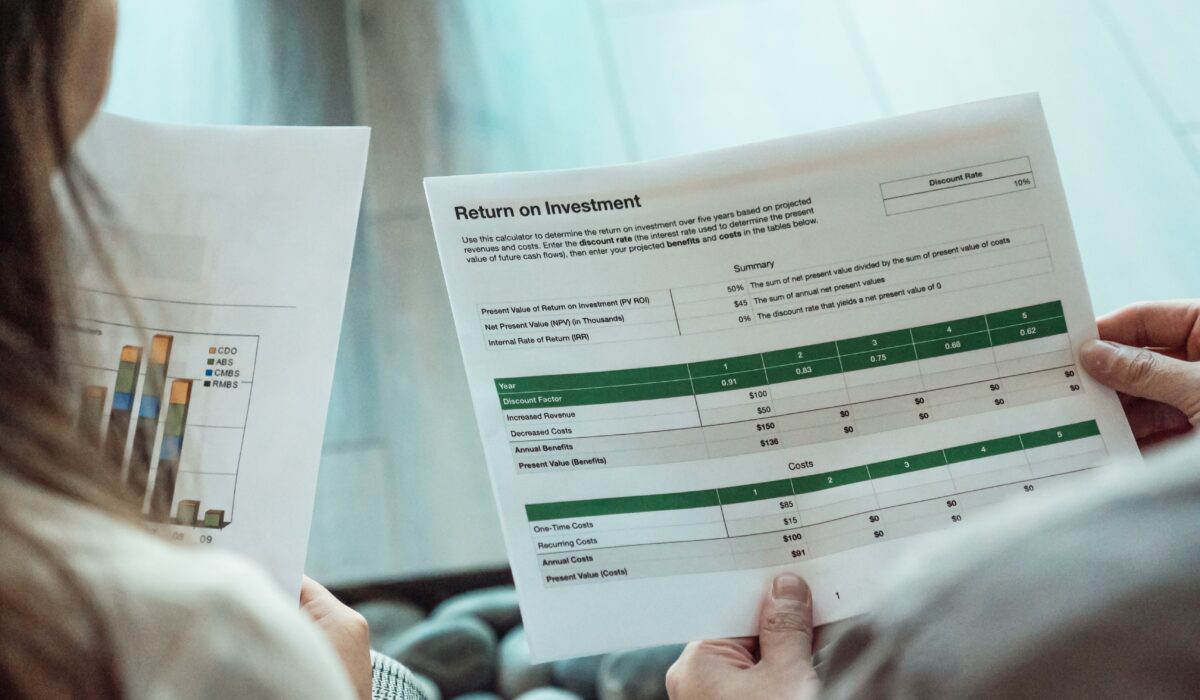IS GOLDEN VISA A ROUTE TO GLOBALISATION AND GLOBAL-CITIZENSHIP?
As I pen down this article after having dived deep into the aspects, possibilities and arenas of “Residency by Investment”, I without a blink of doubts would pop a capital YES to the afore-mentioned question. My yes here is backed with both, the scaling demand of individuals wanting to seek alternative citizenship and the privileges bestowed. In an unsettled, ever-changing world, acquiring an alternate citizenship is not just a means for opening windows to a fresh view but is indeed an investment for life.
The hassles of filling in the requisite forms, applying for a visa when the dates of an important business trip are just around the corner not only just adds to the burden of undergoing interview sessions at the embassies but also adds up to a lot of time being wasted. Significantly, that’s precisely where Golden Visa comes into play. Golden Visa or Citizenship by investment programs provide families with the privilege of acquiring an alternative citizenship, which in turn gives them the right to travel freely to various destinations and to settle in another country.
As the world is becoming increasingly interconnected, the need for greater global mobility is steadily growing. Across the economic spectrum, families seek to gain access to business, career, educational, and lifestyle opportunities on a global scale, enhancing their travel freedom and transcending the constraints imposed on them by their countries of origin. Acquiring an alternative residence or citizenship enables greater flexibility and access to the leading economies of the world.
Having options is an essential part of any family’s insurance policy for the 21st century. The more jurisdictions a family has access to, the more diversified its assets and the lower its exposure to both country-specific and global volatility will be.
The word “Globalisation” implies, “The process by which people and goods move easily across borders”. To that regard, people travel across borders offering their labour, investment and their ideas in the market that cultivate opportunities which otherwise are unavailable in their home countries.
With the keyword in the aforesaid definition being “easily” the necessity of free movement has been captured by countries and their governments around the world and led them to facilitate this movement by offering permanent residence rights to non-natives in return for their private investment funds that would ultimately contribute to the host country’s market.
RBI or CBI (Residency/Citizenship by Investment) programmes are one of several migration policy tools available for attracting economic resources, including also residence permits for entrepreneurs and business start-up visas. Within this field, investment-based visa programmes are divided into ‘active’ and ‘passive’ variants.
- Active programmes require the demonstration of business experience and an on-going involvement with the investment in order to qualify, and thus aim to harness both economic and human capital.
- Passive programmes require merely the expenditure of money. That is, applicants park their funds in the country – typically in real estate, government bonds, or a company – and have no significant further obligations in maintaining the investment.
It is in fact a major pop-up/wondered, as to what exactly the nations intent to achieve by offering the Residency by Investment programmes and do actually pay-off?
The answer to them is pretty simple, the Governments across the globe launch these programmes in the wake of economic downturns, economic crises in particular and subsequently broadly engineer them to target sectors in need. The said schemes not only attracts investment but ensures the flow of human resources too. These channels stand apart from business or entrepreneurial programmes, which require an “active” involvement in the investment, i.e., besides economic capital, the applicant also contributes human capital to the country.
It shall be correct to state that countries do indeed start programmes following economic declines and are more likely to do so after economic crises. They also tend to select investment options tooled to meet economic needs. Notably, a decline in GDP growth is not correlated with greater restrictiveness, but rather the opposite. That is, governments of weakening economies are more likely to launch golden visa schemes, suggesting that they are treated as more like economic tools than immigration-related ones.
Furthermore, it doesn’t matter whether the political left or right is in power: governments from across the political spectrum implement the programmes. Nor do countries start programmes because others have them: there is no contagion effect. Needless to state, investors, when they are shopping for options, behave like tourists and profit-oriented businesspeople, rather than as settlement-oriented immigrants. Conditions related to the long-term quality of life were not significant, while tourism and the potential to make a profit on the investment were. The investors appear more like mobile “flexible citizens” who use the programmes to multiply their options and their finances, rather than as a tool for immigration. Hence, it shall be correct to state that Golden visa is in fact a thriving example of the open world approach which not only incentivises individuals to live, explore plethora of opportunities and finally settle.

IS GOLDEN VISA A ROUTE TO GLOBALISATION AND GLOBAL-CITENSHIP?
As I pen down this article after having dived deep into the aspects, possibilities and arenas of “Residency by Investment”, I without a blink of doubts would pop a capital YES to the afore-mentioned question. My yes here is backed with both, the scaling demand of individuals wanting to seek alternative citizenship and the privileges bestowed. In an unsettled, ever-changing world, acquiring an alternate citizenship is not just a means for opening windows to a fresh view but is indeed an investment for life.
The hassles of filling in the requisite forms, applying for a visa when the dates of an important business trip are just around the corner not only just adds to the burden of undergoing interview sessions at the embassies but also adds up to a lot of time being wasted. Significantly, that’s precisely where Golden Visa comes into play. Golden Visa or Citizenship by investment programs provide families with the privilege of acquiring an alternative citizenship, which in turn gives them the right to travel freely to various destinations and to settle in another country.
As the world is becoming increasingly interconnected, the need for greater global mobility is steadily growing. Across the economic spectrum, families seek to gain access to business, career, educational, and lifestyle opportunities on a global scale, enhancing their travel freedom and transcending the constraints imposed on them by their countries of origin. Acquiring an alternative residence or citizenship enables greater flexibility and access to the leading economies of the world.
Having options is an essential part of any family’s insurance policy for the 21st century. The more jurisdictions a family has access to, the more diversified its assets and the lower its exposure to both country-specific and global volatility will be.
The word “Globalisation” implies, “The process by which people and goods move easily across borders”. To that regard, people travel across borders offering their labour, investment and their ideas in the market that cultivate opportunities which otherwise are unavailable in their home countries.
With the keyword in the aforesaid definition being “easily” the necessity of free movement has been captured by countries and their governments around the world and led them to facilitate this movement by offering permanent residence rights to non-natives in return for their private investment funds that would ultimately contribute to the host country’s market.
RBI or CBI (Residency/Citizenship by Investment) programmes are one of several migration policy tools available for attracting economic resources, including also residence permits for entrepreneurs and business start-up visas. Within this field, investment-based visa programmes are divided into ‘active’ and ‘passive’ variants.
- Active programmes require the demonstration of business experience and an on-going involvement with the investment in order to qualify, and thus aim to harness both economic and human capital.
- Passive programmes require merely the expenditure of money. That is, applicants park their funds in the country – typically in real estate, government bonds, or a company – and have no significant further obligations in maintaining the investment.
It is in fact a major pop-up/wondered, as to what exactly the nations intent to achieve by offering the Residency by Investment programmes and do actually pay-off?
The answer to them is pretty simple, the Governments across the globe launch these programmes in the wake of economic downturns, economic crises in particular and subsequently broadly engineer them to target sectors in need. The said schemes not only attracts investment but ensures the flow of human resources too. These channels stand apart from business or entrepreneurial programmes, which require an “active” involvement in the investment, i.e., besides economic capital, the applicant also contributes human capital to the country.
It shall be correct to state that countries do indeed start programmes following economic declines and are more likely to do so after economic crises. They also tend to select investment options tooled to meet economic needs. Notably, a decline in GDP growth is not correlated with greater restrictiveness, but rather the opposite. That is, governments of weakening economies are more likely to launch golden visa schemes, suggesting that they are treated as more like economic tools than immigration-related ones.
Furthermore, it doesn’t matter whether the political left or right is in power: governments from across the political spectrum implement the programmes. Nor do countries start programmes because others have them: there is no contagion effect. Needless to state, investors, when they are shopping for options, behave like tourists and profit-oriented businesspeople, rather than as settlement-oriented immigrants. Conditions related to the long-term quality of life were not significant, while tourism and the potential to make a profit on the investment were. The investors appear more like mobile “flexible citizens” who use the programmes to multiply their options and their finances, rather than as a tool for immigration. Hence, it shall be correct to state that Golden visa is in fact a thriving example of the open world approach which not only incentivises individuals to live, explore plethora of opportunities and finally settle.
– Ujjwala Gupta, Senior Associate, SUO Law



